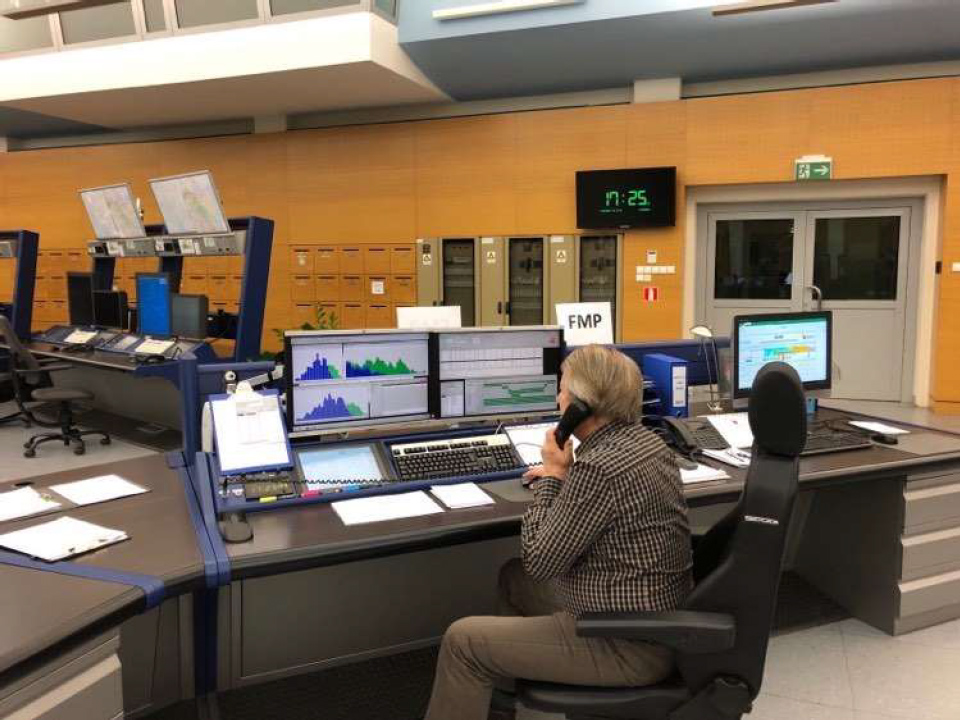Bad weather can play havoc with the best-laid plans. This is especially true in air traffic management, where poor meteorological conditions is the cause of an estimated 20 % of all traffic delays in Europe. Predicting the weather relies on timely and accurate forecasts, which is easier said than done given how quickly the conditions can evolve. A newly-launched SESAR project, FMP-MET will look at how to better predict and assess the impact of the weather on air traffic operations, as Alfonso Valenzuela, one of the principal researchers in the project explains in this interview.
How does weather currently impact the planning and management of flights?
Adverse weather has a significant impact on air traffic. It is estimated that poor meteorological conditions en-route are responsible for about 4 million minutes of delay every year in Europe. Delays come about because bad weather makes air traffic difficult to predict and complex to manage, resulting in reduced airspace capacity.
How easy is it to predict the impact of this weather on operations?
It is quite challenging, mainly because forecasting adverse weather is very difficult, even for short lead times. Furthermore, the accuracy of the weather prediction rapidly degrades with the forecasting horizon. Quantifying the weather forecast uncertainty is the main difficulty, and its analysis requires a probabilistic approach.
How much in advance are weather forecasts currently integrated into the system?
Every air traffic control centre has a flow management position (FMP), the job of which includes the mitigation of bad weather effects. The flow manager consults several meteorological forecasts daily to build a picture of the weather phenomena; based on this data and their own judgement of the situation, they estimate the impact on traffic and their specific sector of the airspace. However, these forecast estimations often lack sufficient accuracy due to the stochastic or random evolution of the atmosphere, which makes predicting the real impact of a thunderstorm, for example, very challenging.
How does FMP-Met project aim to address the challenges associated with forecasting?
We plan to utilise ‘Ensemble Weather Forecasting’, a technique that provides an ensemble of deterministic forecasts (referred to as members of the ensemble), so that the output is a representative sample of the possible weather realisations. The spread given by all the ensemble members allows to quantify the forecast uncertainty. We will use different ensemble forecasts (the best available at each time and location), with different time and spatial scales, which will be combined seamlessly to provide a single probabilistic prediction of the air traffic.
Is this first time such research has been done? Or are you building on previous research?
The integration of weather uncertainty into the air traffic management is an active field of research. FMP-Met is a direct continuation of two SESAR projects: TBO-Met, where we provided a probabilistic analysis of the impact of weather on trajectory optimisation and sector demand, and PSA-Met, where we addressed the problem of probabilistic storm avoidance.
How do you hope the results of your project will be used?
The aim is to develop a concept to assess the impact of convective weather on traffic flow management (TFM) using probabilistic weather forecasts. We will provide probabilistic predictions of sector demand, complexity and capacity reduction, and will also provide guidelines for their use and visualisation. The ultimate goal is that, at each control centre, the FMP have a tool to predict the impact of severe weather on the air traffic.
What benefits do you hope your project will bring?
Early warnings of capacity reduction and sector congestion due to convective weather will allow for better-informed decision making in TFM, and this, in turn, will improve the effectiveness of the actions taken by the FMP. Consequently, we expect that the methodologies developed in this project will help to reduce the weather-dependent delays, reducing air traffic costs and improving the passenger trip experience.
This project has received funding from the SESAR Joint Undertaking under the European Union's Horizon 2020 research and innovation programme under grant agreement No 885919
Read about the project: https://www.sesarju.eu/projects/fmpmet
Read about TBO-MET: https://www.sesarju.eu/projects/tbo-met


